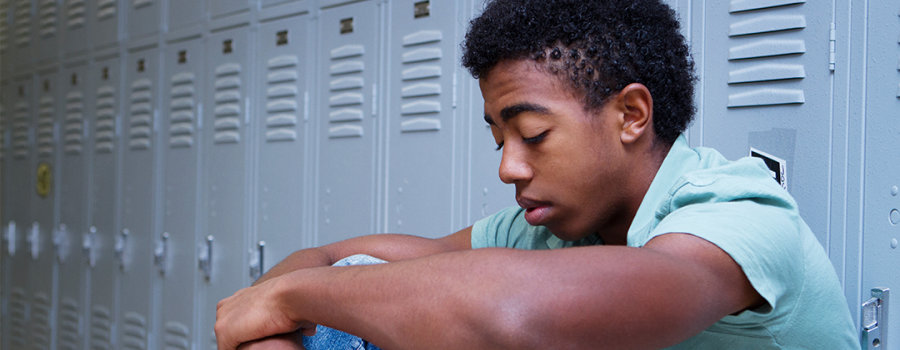Suicide can be a very difficult topic to discuss. Teachers often feel helpless to prevent student suicide, but they probably underestimate the impact of their words on their students. Honest and caring conversations about suicide can save lives. Not only can students in emotional pain benefit from these talks, but their peers can begin to recognize warning signs among their friends and gain the courage to act. Silence on this topic will not make it go away.
Youth who feel hopeless or depressed can become desperate. It’s vital that everyone know the warning signs of suicide and never ignore them. Educators can share with their students that suicide notes or threats should be taken very seriously. Indirect comments like “The world would be better off without me," or "I want to go to sleep and never wake up,” may mean the same thing as "I am going to kill myself." These messages can come in more subtle forms through joking, creative writing, artwork, or social media posts. Let your students know never to promise to keep these comments a secret.
Warning Signs
The discussion about warning signs needs to include risk-taking behaviors like playing with guns and abusing alcohol or other substances. Their friends might not even seem sad, but their actions may show that they don’t care about their own safety. These are warning signs. So are having a preoccupation with death, making plans for their own death, giving away their favorite possessions, or saying goodbye. Painful events like break-ups, failing in school, being bullied, a stressful family life, or experiencing abuse can trigger suicidal thoughts and actions. Even sudden and unexplained happiness can be a warning sign.
Teachers and friends may be the first to notice sudden changes in behavior, like withdrawing from the people they love, skipping classes, losing interest in activities that used to be important to them, or ignoring their own hygiene or personal appearance.
Risk Factors
In addition to warning signs, let your students know about risk factors that may increase the chance of suicidal actions. Those youth who show hopelessness along with depression are at greater risk. Their feelings may result in thoughts of suicide. The risk is greater, too, for those who self-injure. If they have a mental illness, their family members or friends have committed suicide, or there is a firearm in the home, their risk of suicide is also higher.
Increasing awareness of warning signs and risk factors is essential. Still, classroom discussions about suicide need to go further so that students know what to do next. Let students know that just talking to their friends who show these signs can help. Being with them and listening is critical, so is letting them know how important they are, and that there is help and hope. Inform students that free help is available by calling 1-800-273-TALK (8255) or texting "START" to 741-741 to talk to a counselor with the Crisis Text Line.
Students need to know never to keep a friend's suicidal thoughts or plans a secret (NASP, 2015). They must tell an adult and do it right away. They could tell any trusted adult, whether it’s their own parent, their friend's parent, a school psychologist, teacher, or counselor. Teachers can reassure them they never need to worry about whether the adults will believe them, but to just keep telling adults until one of them listens. By starting these discussions and sharing the facts with their students, educators can bring light to the darkness for youth who are in pain.
Reference: National Association of School Psychologists (NASP), 2015.
If this is an emergency situation and you or someone you know is in need of immediate help please do not hesitate to contact one of the following resources:
- National Alliance on Mental Health (NAMI) Crisis Text Line: Call 1-800-950-NAMI
- Text "START" to 741741 any time.
- The National Suicide Prevention Lifeline: Call 1-800-273-TALK (8255).
- Call or text 988 or visit the 988 Suicide and Crisis Lifeline (988lifeline.org)
This blog article was contributed by Becky Darling, School Psychologist, Nexus–Indian Oaks Family Healing.
Nexus Family Healing is a national nonprofit mental health organization that restores hope for thousands of children, families, and adults each year through services in community mental health, crisis and stabilization, foster care and adoption, and residential treatment. For over 50 years, we’ve used innovative, personalized approaches to heal trauma, break cycles of harm, and reshape futures. We believe every child is worth it — and every family matters. Access more resources at nexusfamilyhealing.org/resources.
